Introduction
The University of Urbino is located in Urbino, Marche, Italy. It is a public university with a history of more than five centuries. Its predecessor was the law school established by Guidobaldo da Montefeltro, Duke of Urbino in 1506.
Overview
Student size: Currently, there are about 14,000 students, many of whom are from abroad.
Number of faculty and staff: About 800 teachers and 400 administrative staff.
History
When it was founded in 1506, it was called "Collegio dei Dottori" as a law school. From the 16th to the 19th century, the school underwent many changes and developments, and its name was changed. For example, it was changed to "Pubblico Studio di Urbino" in 1576, "Studio Generale di Urbino" and "Università di Urbino" in 1671.
From the 19th to the 20th century, the school continued to expand and reform. In 1862, it became "Libera Università Provinciale di Urbino", and in 1923 it was changed to "Università Libera di Urbino".
From the 1960s to the 1970s, under the leadership of President Carlo Bo, the school acquired and restored many abandoned buildings in the old town and used them as teaching buildings, office buildings and libraries, etc., and the school's scale and reputation have been unprecedentedly developed.
Founded in 1506.
School Strength
Teaching Staff: With about 800 Teachers have rich teaching and research experience in their respective disciplines and provide high-quality education and teaching services for students.
Scientific research level: In-depth research has been carried out in many disciplines such as humanities, social sciences, and natural sciences, especially in literature and language research, sociology, sports science, biology, and computer science. Remarkable results have been achieved, which have made positive contributions to promoting academic development and social progress.
International cooperation: As a member of the EU Socrates-Erasmus exchange student program, it actively carries out international exchanges and cooperation, and has established extensive cooperative relations with universities around the world, providing students with abundant exchange opportunities for studying abroad, and enhancing the school's international reputation and influence.
Institutional nature
Public university.
Educational philosophy
Focus on cultivating students' humanistic literacy and comprehensive abilities, emphasizing the combination of knowledge imparting and moral cultivation, so that students have solid professional knowledge and good moral qualities, and can play an active role in the future society.
Advocate interdisciplinary learning and research, encourage students to break disciplinary boundaries, broaden academic horizons, and cultivate innovative thinking and the ability to solve complex problems to meet the needs of social development for compound talents.
Key laboratories and disciplines
Key laboratories: No clear key laboratory information has been found yet, but all disciplines of the school are equipped with corresponding research facilities and experimental equipment, which provide strong support for teaching and scientific research.
Advantageous disciplines:
Humanities and social sciences: Literature, philosophy, history, sociology and other disciplines have a high reputation in Italy and even in Europe, and have cultivated many outstanding humanities and social science talents. Its Italian courses are also highly praised.
Sports science: It has rich teaching and scientific research experience in sports education, sports training, sports management, etc., and has cultivated a large number of professional talents in the sports field.
Biology: It covers multiple professional directions such as biological sciences, biotechnology, molecular biology, etc., and its research results have a certain influence in the field of life sciences.
Computer science: With the development of information technology, computer science has gradually become one of the school's advantageous disciplines, providing students with systematic computer theoretical knowledge and practical skills training.
Faculty
Before 2013, the school had 11 colleges, including the School of Economics, the School of Education, the School of Environmental Sciences, the School of Law, the School of Literature and Philosophy, the School of Mathematics, Physics and Natural Sciences, the School of Modern Languages and Literature, the School of Pharmacy, the School of Political Sciences, the School of Sociology, the School of Sports Sciences, etc. After the Gelmini reform in 2009, starting from the 2013/2014 academic year, the school changed to an organizational structure based on 6 departments and 2 institutes, namely the Department of Pure Applied Sciences, the Department of Communication Sciences, Humanities and International Studies, the Department of Economics, Social Politics, the Department of Humanities, the Department of Law, the Department of Biomolecular Sciences, the Italo Mancini Institute for Advanced Studies in Religious Sciences, and the Institute of Journalism.
Ranking
2024 US NEWS World University Rankings: 1375th.
2024 TIMES World University Rankings: 1001st.
Expenses
Tuition fees: Depending on the major and degree level, the tuition fees for undergraduate courses are generally around 1000-3000 euros/year, and the tuition fees for postgraduate courses are around 1500-4000 euros/year. For specific tuition fees, please refer to the school's official website.
Accommodation fee: The school does not have its own student dormitories, but there are student dormitories and apartments in Urbino managed by the Regional Education Rights Office, such as Vela, Tridente, Aquilone, Serpentine and other colleges and Casa Studentessa female dormitory. The accommodation fee varies depending on the room type and facilities, generally between 200-500 euros per month.
Campus environment
Geographic location: Located in Urbino, Marche region, east-central Italy, the city is a mountain city surrounded by city walls, which retains many picturesque medieval scenery. In 1998, In 2000, the historic center of Urbino was listed as a World Heritage Site by UNESCO.
Teaching facilities: The school's teaching buildings, libraries and other teaching facilities are distributed in many buildings in the old town of Urbino and the surrounding countryside. These buildings have been restored and renovated, retaining the historical and cultural characteristics, and equipped with modern teaching equipment, providing students with a good learning environment.
Campus culture: The students of the University of Urbino are full of vitality. At night, students will discuss various topics on the streets, steps, benches, and cafes, forming a strong academic and cultural atmosphere.
-
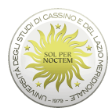
University of Cassino and Southern Lazio
-
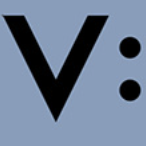
University of Campania Luigi Vanvitelli
-
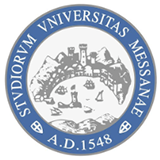
University of Messina
-
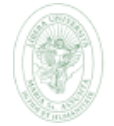
Libera Universita degli Studi Maria SS. Assunta di Roma (LUMSA)
-
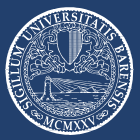
University of Bari Aldo Moro
-
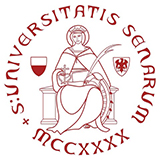
University of Siena
-
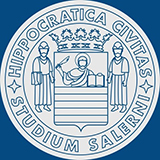
University of Salerno
-
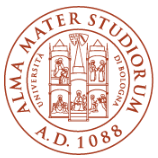
University of Bologna
-
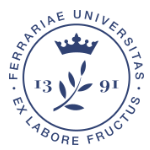
University of Ferrara
-
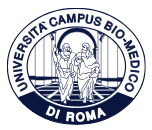
Campus Bio-Medico University of Rome
-

Mesoamerican University
-

Istmo University
-

Mariano Galvez University of Guatemala
-

Regional University of Guatemala
-

Galileo University
-

Francisco Marroquín University
-

Rafael Landívar University
-

University of the Valley of Guatemala
-

University of San Carlos of Guatemala
-

Technological Institute of Tlaxcala Plateau
-

Golfo University
-

Technological University of South Sonora
-

Technological University of Huejotzingo
-

Tizimín Institute of Technology
-

Chilpancingo Institute of Technology

